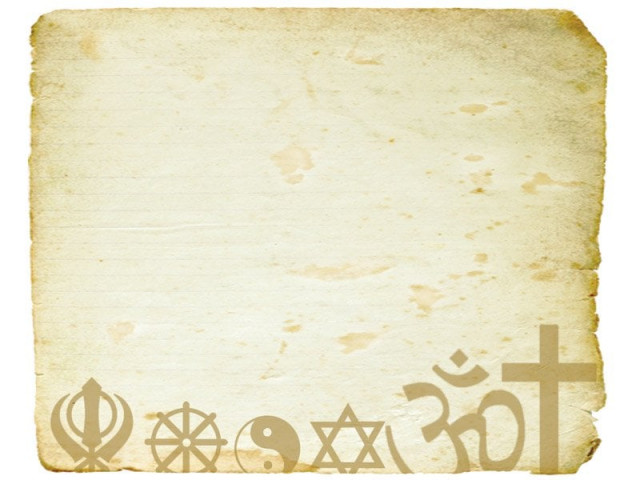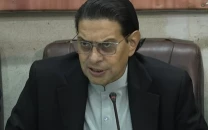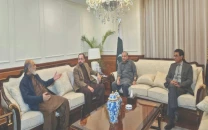Neglected and forgotten: Minority Advisory Council fails to meet in two years
Members say no laws exist to protect them, emigration rising due to threats.

The closure of the Ministry of Minority Affairs has affected international treaties and conventions that the country had signed to protect the rights of minorities. DESIGN: FAIZAN DAWOOD
The Minority Advisory Council (MAC), established under the Government of Punjab two years ago, has failed to hold a single meeting in its short history of existence. Members of minority groups claim that a rising sense of insecurity and negligence on the part of the government has led to an increase in the number of religious-minority members migrating abroad.
The MAC consists of 18 to 20 members from religious minority groups, including Christians, Sikhs, Hindus and others who are influential within their communities.
The lack of interest and political will shown by the government has left members of council pondering over the usefulness of the body. According to members of the council, constant reminders to hold meetings to address issues faced by minorities have been sent up the chain, but to no avail.
Pakistan Hindu-Sikh Social Welfare Council President Jagmohan Kumar Arora said, “We know that the offices are operational. We get regular invites from them for events such as project inaugurations.”
He said, “Every time a large project is launched, we are sent invites and follow up phone calls to ensure our presence.” Arora said that they now felt that the role of not just the minorities, but even their representatives was just to ensure symbolic presence at various events and ceremonies.

Arora said that while local issues were dealt by in-house by elders with the same religious beliefs, representation at district level remains unheard of. He said that the security of minorities was an issue of foremost concern.
He said that for the past few years, there had been an increase in direct threats from anonymous groups and individuals. “Hindus have been moving abroad at a higher rate than ever. Direct threats in the form of telephone calls and letters are on the rise,” he added. Arora said that such threats and anonymous phone calls were terrorising the few remaining Hindus.
He claimed that such an issue cannot even be reported to the police, since there was no law for the protection of minority groups. Arora remarked that even the courts could not pass favourable judgments. The Hindu-Sinkh Social Welfare Council president said that no concrete work had been done in terms of amendment of laws to protect the minorities.
Legalese
Advocate Majid Bashir maintains that under the Constitution all citizens of Pakistan enjoy equal rights and protection irrespective of caste, creed or religion, but recommended that specific amendments in the law are needed to cater to the needs of religious minorities currently threatened by a rise in targeted attacks.
Saad Rasool, a human rights lawyer from Lahore said that even though the constitution defines religious minorities, there is no legislative instrument in place to protect them. He said that there were two laws that relate to the religious minorities --- the anti-Qadiyani laws and the blasphemy laws --- neither of which are intended to protect them.
With the lack of representation on the government front, another member of the Hindu community was of the opinion that NGOs working on minority rights in Pakistan have no influence on policy. “The recommendations made for the government are documented in reports and promptly shelved,” said the member. “No NGO has ever conducted an accurate survey and gathered data on genuine cases being reported on violence against religious minorities in Pakistan,” the member claimed.
Another member of the council said that due to forced conversions, there was a sharp increase in the number of Hindus leaving the country. He demanded that the state needs to play its part to provide protection to these individuals.
After the passage of the 18th Amendment in 2010, powers concerning minority affairs were transferred from the centre to the provinces. The closure of the Ministry of Minority Affairs has affected international treaties and conventions that the country had signed to protect the rights of minorities.
According to the 1998 census, Hindus make up 1.2 per cent of the population, rising to as much as 20 per cent of the population of rural Sindh, while Christians were estimated at 1.9 per cent.
Published in The Express Tribune, June 22nd, 2014.



















COMMENTS
Comments are moderated and generally will be posted if they are on-topic and not abusive.
For more information, please see our Comments FAQ